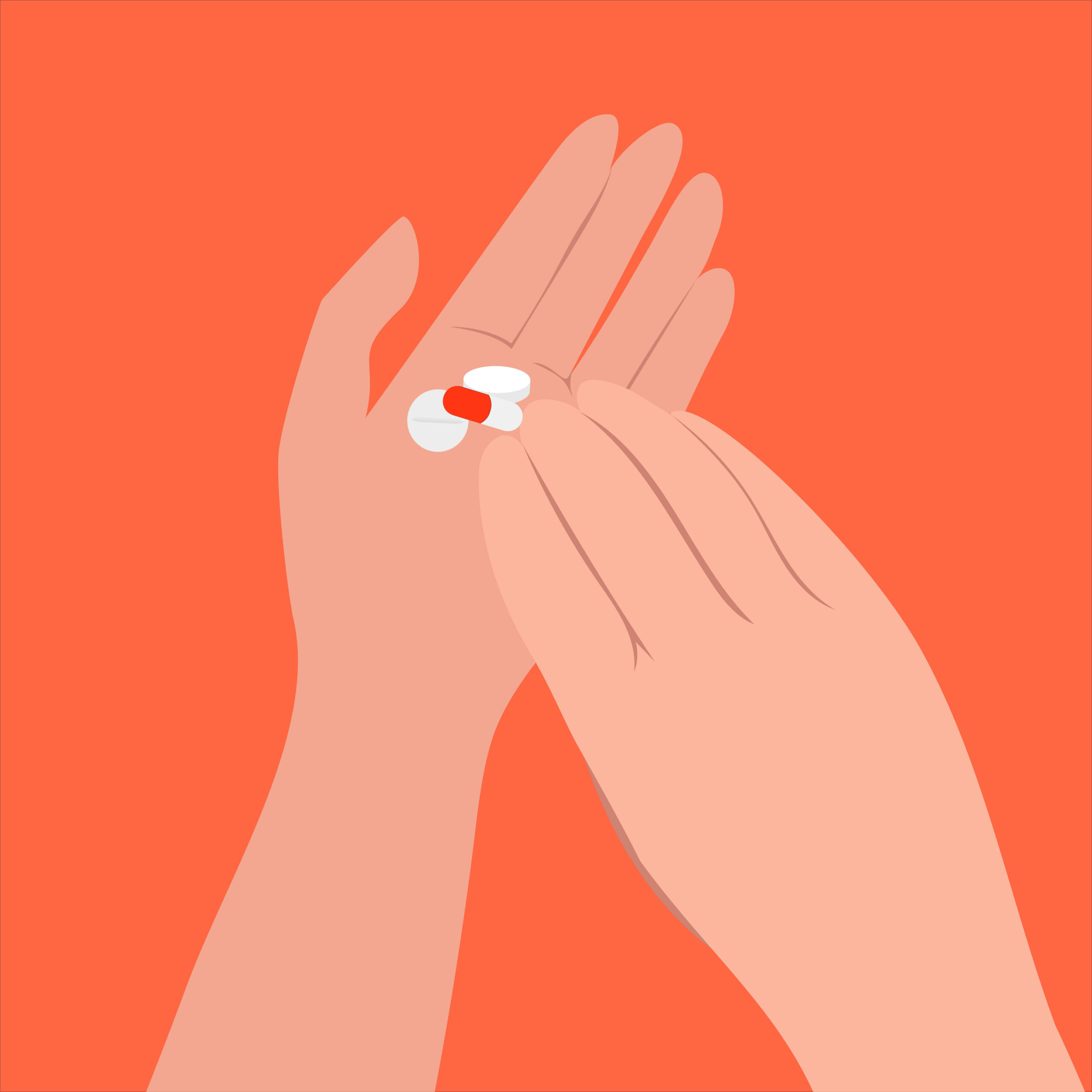
In this rapidly developing world, our choices and preferences are getting more and more distinct, each of them playing a necessary role in making our lives unique and enriched. These choices now define our very selves, making and unmaking us as they lead us down different paths.
Precision medicine is an approach to healing along these lines, designed by doctors and researchers to accurately identify treatment and prevention strategies that would work effectively in different individuals or different groups of people.
A World of Precise Care
“You can match a blood transfusion to a blood type — that was an important discovery. What if matching a cancer cure to our genetic code was just as easy and just as standard? What if figuring out the right dose of medicine was as simple as taking our temperature?” – President Obama, January 30, 2015
Precision medicine is based on the idea that a medical condition may not have the same implications for everyone and would differ based on factors such as your genes, the local environment, associated symptoms, and treatment efficacies.
“Precision care is a wider ability of doctors’ to use the patient’s genetic and other molecular information as part of routine medical care,” says Dr. Jyoti Upadhyay, Specialist Internal Medicine, Aster Hospital, Mankhool.
The concept of precision medicine might still be in its infancy, but it has been around for a long time as a healthcare strategy. As a simple example, blood and organ transfusions are only done from a matching blood type to cut out the risk of any complications. More specifically, a drug known as imatinib (Gleevec) is used to treat leukemia only in patients with a specific genetic mix. Gleevec is a glowing indication of precision medicine’s vast potential for cancer treatment.
The Work Behind it All
The research for precision medicine involves the gathering and integration of a repository of data. As more data is collected, we receive valued insights that may lead to better practices in preventing illnesses and a more personalized diagnosis system that makes it more accurate. Therefore, the treatment (which is personalized for every patient) gets more reliable and better. Anyone can aid the growth of precision medicine – be it researchers, clinicians, patients, or the community.
The research so conducted flows into the information commons, a shared repository. The information commons is a space where data is structured into layers, just like a Google map. These layers help us discover connections and patterns that indicate the factors concerning prevention, diagnosis, and treatment.
As per Dr. Jyoti, “We’re at an early stage of learning how best to put all of this information together to help patients make decisions with their doctors about how to best achieve health goals. Medical centers and universities are working to develop new information that will help doctors pair the right patients with the right medications.”

As more data is collected, we receive valued insights that may lead to better practices in preventing illnesses and a more personalized diagnosis system that makes it more accurate
A Collective Initiative
President Obama flagged off the Precision Medicine Initiative in the 2015 Union State Address with this mission statement:“To enable a new era of medicine through research, technology, and policies that empower patients, researchers, and providers to work together toward development of individualized care.”
This long-term research initiative is being carried out with the involvement of the National Institutes of Health (NIH) and several other research centers. Its overall goal is to understand how genetics, lifestyle, and environment of a person or a group could help identify the best approach for prevention and treatment of cancer and other healthcare areas.
A concept as deep and profound as precision medicine cannot be an initiative of a single major entity alone. Other organizations, including renowned research firm Academia, have also initiated research efforts with similar objectives. In addition, major business magnets such as Bill Gates and Mark Zuckerberg have made significant contributions to precision medicine development; the former announced a $50 million investment in data-driven Alzheimer’s research, while the latter donated $10 million to the UCSF Institute for Computation Health Sciences.
Tempus, a Chicago-based company, boasts of holding the world’s largest repository of molecular and clinical data, all being built to offer doctors more clinical context for every case of cancer, for every affected individual. In China, Insilico Medicine is initiating research efforts with the sole purpose of driving healthy longevity through AI solutions for drug discovery. Healex, a firm based in the United Kingdom, is researching novel solutions for individual care using advanced data analysis.
In the big Indian health market, a project known as Genome India is laying the foundation for precision medicine by mapping the diversity of the country’s mammoth genetic pool. Swagene is another Indian company that seeks to pioneer personalized medicine in the areas of oncology, fertility, and cardiology.
On local shores, Thumbay Research Institute for Precision Medicine plans to establish an interdisciplinary basic and translational cancer and diabetes research program to address the increasing challenges healthcare providers face in the UAE. The core focus of the institute is to play an active role in comprehensive, translational research and personalized medicine, with the aim of becoming a center of excellence and leader in developing personalized medicine.

“Precision care is a wider ability of doctors’ to use the patient’s genetic and other molecular information as part of routine medical care” — Dr. Jyoti Upadhyay, Specialist Internal Medicine, Aster Hospital, Mankhool.
The Bitter Pill
All new inventions, from the printing press to the world-wide-web, only revealed a sliver of their potential at the outset but have since gone on to change the rules of reality for human existence. Likewise, precision medicine is full of game-changing possibilities, but many will take time.
As already observed, precision medicine will allow doctors to use patients’ genetic and other molecular information as a part of their medical plan. This can directly improve the capabilities that help better identify the treatment model for treating specific patients. As a result, doctors can have a deeper understanding of the underlying mechanisms due to which diseases occur. Even better, it can potentially create a significant perspective shift – from reaction to prevention.
The challenge with precision medicine is quite similar to that of many other technologies that are in a stage of infancy. Researchers are still grappling with ideas to standardize the clinic and hospital data collection from the many who would contribute to the research. The data so gathered must also be efficiently stored, without which the noble contributions of many would be in vain.

On average, it takes 10-15 years to manufacture a medicine, which may cost around $ 1 billion
More importantly, the research being pursued as a part of the Precision Medicine Initiative must be conducted without affecting the privacy of those willing to participate, a challenge mighty enough given the many data threats we face every day. The research efforts that can make precision medicine possible require heavy funding, no doubt. But what is more worrying is that the cost of personalized medicines and treatments developed through the advancement of precision medicine could continue to be higher. On average, it takes 10-15 years to manufacture a medicine, which may cost around $ 1 billion. On a good note, though, it can reduce the cost of treatment and medicines for the many that go through the unwanted ordeal of lab testing and treatment methods that may not even be related to their condition.
A field of medicine that has the capability to deliver patients the right medical intervention at the right cost could go a long way in reducing healthcare budgets. But would the time taken to manufacture a medicine delay the treatment of patients who may require medicines curated for them? The extraordinary research efforts of the many leading global centres indicate that this might be taken care of, thanks to the immense potential of data analysis. Despite the aforementioned advantages pertaining to the budget, healthcare’s biggest nemesis, the factor of affordability may continue to plague the disadvantaged. This is something that the healthcare fraternity must factor in.
To sum up, the main pitfalls, as pointed out by expert Dr. Jyoti Upadhyay, include the high cost associated with precision medicine, fear of genetic discrimination, misinterpretation of genetic and health data, access and availability of genetic testing, and a relatively unprepared primary care workforce.
The World of Precision Treatment
Here’s an overview of a few areas where we know precision medicine could make a vital difference:
Precision Oncology: While cancers have been earlier classified based on the type of tissue or part of the body where they show up, researchers are not trying to identify the molecular fingerprints of the different cancer types so as to divide them into precise types and subtypes. These research efforts have paved the way for a new model of cancer research, precision oncology.
As per this concept, doctors would advise treatments based on the DNA signature of a person’s tumor. The DNA in our bodies contain our unique genes, and the cells in our bodies use information from these genes to produce proteins – elements that keep your body functioning normally. Cancers are caused if the genes react in a way that turns our normal cells cancerous.
Dr. Jyoti explains, “The most promising area of precision medicine to date is cancer. Genetic testing can be used to figure out if you’re more likely to get certain forms of cancer. ‘Basket trials’ research cancer drugs being prescribed based on the genetic mutation of a tumor, rather than the type of tumor (such as breast, lung, or prostate).”
Precision Psychiatry: The clinical specialties of psychiatry haven’t developed in the same vein as other major diseases, for mental health issues often escape the attention and urgency that physical ailments receive. Precision psychiatry seeks to change this by using systems biology and computerized psychiatry tools to create a biosignature, known as ‘Biomarkers’. This, when applied to individuals according to their unique biomarkers, could help doctors correctly interpret the biological pathways that relate to diagnosis and make more meaningful medical interventions, leading to happier outcomes.
Vision for the Future
The world is gathering together to make precision medicine a splendid success, precisely because we need much more tools in our arsenal to prevent and combat diseases, many of which continue to be a challenge in the advanced health ecosystem of the 21st century. These efforts can only succeed with integrity by ensuring that everyone’s privacy is respected and no one is disadvantaged by the consequences of these findings. At the end of it all, an effort supported by the community must support the community.
